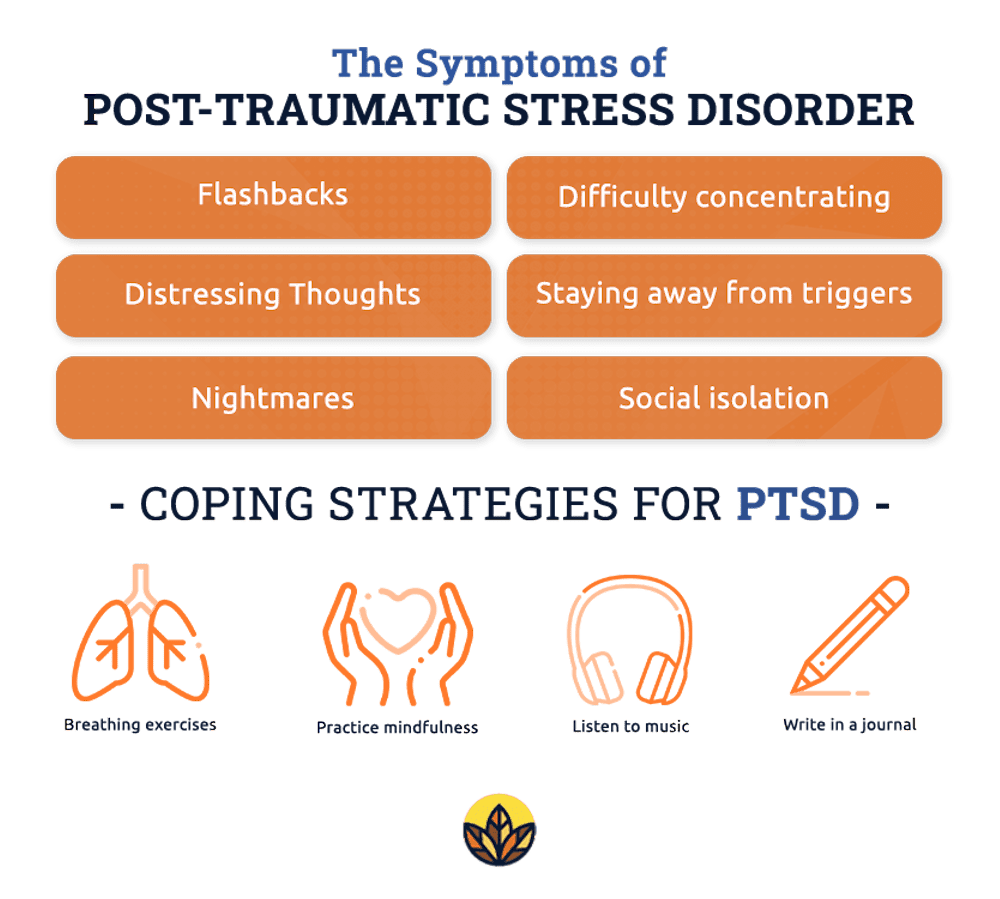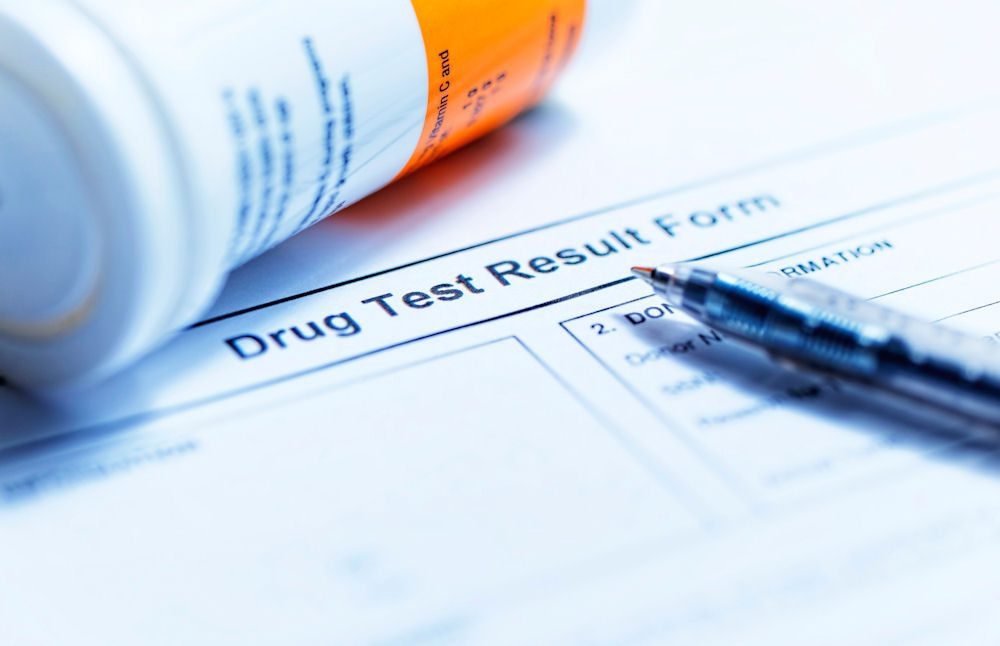PTSD Rehab Program
Trauma can happen to anyone at any time. When it happens, most of us are not equipped to deal with emotional or mental fallout. As a result, the symptoms of post-traumatic stress disorder (PTSD) can grow worse over time. The PTSD treatment program at Northern Illinois Recovery Center offers an anxiety treatment program in Northern IL, support, and healing for victims of trauma.
We offer a comprehensive post-traumatic stress disorder treatment program that includes a full assessment, individual and support group therapy, and holistic strategies that help you rise above your trauma. While you can’t change what happened to you, it is possible to redefine your life free from PTSD. We can help you every step of the way.
Jump to Section
What is Post Traumatic Stress Disorder?
PTSD is a mental health condition that can develop in individuals who experience or witness trauma. It is a complex disorder characterized by intrusive and distressing symptoms that persist for an extended period after the traumatic event has occurred.
Acute stress disorder (ASD) is a related condition that shares similarities with PTSD. It occurs in the immediate aftermath of a traumatic event and involves similar symptoms, such as intrusive thoughts, emotional distress, dissociation, and avoidance. The key difference between ASD and PTSD is the duration of symptoms. Acute stress disorder symptoms typically last for a minimum of three days and a maximum of one month, whereas PTSD symptoms persist for more than a month.
While not everyone who experiences ASD will develop PTSD, it is possible for ASD to transition into PTSD if the symptoms persist beyond the one-month mark. Factors such as the severity of the traumatic event, the presence of prior trauma, the individual’s coping mechanisms, and the availability of social support can influence the likelihood of this transition.
It’s important to note that not everyone who experiences a traumatic event will develop acute stress disorder or PTSD, as individual responses to trauma can vary. However, seeking timely and appropriate support from mental health professionals can help individuals mitigate the long-term impact of trauma and prevent the development of PTSD.
Signs and Symptoms PTSD
You may be surprised to discover how many people live with this disorder. It’s a common misconception that PTSD only occurs in people who have seen military combat, but PTSD can arise from a wide range of traumas, such as:
- Death of a loved one or a friend
- Witnessing a natural disaster
- Returning home from war
- Experiencing rape or sexual assault
- Being the victim of physical or verbal abuse
- Experiencing physical neglect
- Living with drug or alcohol addiction
If you are like others, surviving a trauma does not necessarily mean that you “made it through.” The emotional and mental effects can still govern your life long after the trauma occurred. This is especially true if someone else comprised your integrity or dignity. So it’s important to talk to mental health professionals and seek mental health treatment if you experience or witness something traumatic.
Instead of dealing with the trauma, you may have put it behind you so that you do not have to deal with it anymore. In time, however, the symptoms of PTSD will eventually surface. They may even destroy many areas of your life, such as your job, your family, finances, or relationships with your friends. PTSD symptoms can manifest in various ways, including intrusive memories or flashbacks, nightmares, severe anxiety or distress, frequent emotional pain, avoidance of reminders of the traumatic experience, negative changes in mood or thinking, and heightened reactivity. These symptoms can significantly impact a person’s daily functioning and quality of life.


PTSD Treatment in Illinois
The most important step you can make in addressing PTSD is to seek treatment. Northern Illinois Recovery Center offers full support and care through our anxiety therapy program in Northern IL. No matter how deeply entrenched PTSD is in your life, we can help you manage your symptoms in a healthy manner.
Our PTSD treatment program in Northern IL includes:


- A full analysis of your mental, emotional, or physical symptoms
- Dual diagnosis treatment if you also suffer from addiction
- Individual therapy program and group therapy program and support
- Evidence-based therapy backed by extensive research
- Holistic treatment approach to heal your mind, body, and soul
- A full multi-disciplinary staff that works together to help you
PTSD usually develops over time – months or years. Therefore, you may need to engage in a wide range of treatments that address all the lasting effects of your trauma.
Dual Diagnosis for PTSD and Addiction
Many trauma victims resort to substance abuse as a form of self-medication. This often indicates a lack of proper coping mechanisms. However, through dual diagnosis, we can examine and address all facets of PTSD, including addiction. By identifying the root causes of your addiction and disorder, we can effectively treat both. The key benefit of dual diagnosis is a comprehensive treatment approach, leading to the holistic healing of the entire self.
Our dual diagnosis program at Northern Illinois treatment center offers therapy options to fit each individual’s needs. Cognitive-behavior therapy and dialectical behavioral therapy are effective treatments for learning healthy coping skills and for processing trauma. We also offer gender-specific treatment and have programs for women, men, young adults, and seniors. In trauma treatment, especially, it’s beneficial to receive treatment that is tailored to age and gender. These specific treatment programs also contribute to creating a safe environment to talk about your mental health issues and receive PTSD treatment.
Residential PTSD Treatment


Northern Illinois Recovery Center offers comprehensive inpatient rehab Illinois for individuals struggling with PTSD. Recognizing the profound impact of traumatic events on mental health, our center provides a supportive environment where individuals can find healing and regain control of their lives. Our evidence-based approach relies on psychotherapy, including individual and group therapy, tailored to address the unique needs of each client. Through individual therapy sessions, our experienced clinicians guide individuals toward understanding and processing their traumatic experiences, fostering personal growth and resilience.
In addition to individual therapy, our group therapy sessions offer a safe space for participants to connect with others who have faced similar challenges. This supportive community promotes empathy, understanding, and shared experiences, facilitating the healing process.
At Northern Illinois Recovery Center, we understand the complex relationship between PTSD and substance use disorder. Our specialized programs are designed to address both conditions simultaneously, ensuring comprehensive care for individuals with co-occurring disorders of anxiety and substance abuse. With a commitment to holistic healing, our PTSD treatment programs prioritize the physical, emotional, and psychological well-being of our clients. Through a combination of evidence-based therapies, trauma-informed care, and compassionate support, we empower individuals to reclaim their lives and find lasting recovery.
Outpatient PTSD Treatment


PTSD rehab often takes a minimum of one year. Outpatient treatment programs provide continued support for mental health issues and enable individuals to take part in regular activities and commitments daily while still receiving regular treatment. For a co-occurring disorder, Northern Illinois Recovery Center offers a full continuum of care including an aftercare and outpatient program. Those who have a substance abuse problem and require PTSD treatment can detox at our rehab and continue their treatment plan in our residential or outpatient program.
Like residential PTSD treatment centers, our outpatient services also include psychotherapy. Continuing to support your mental health and process trauma is essential to the treatment process. Individuals can also receive trauma therapy in an outpatient program without having first attending residential treatment. This is a good option for those with PTSD who do not have a co-occurring substance use disorder.
Why Northern Illinois Recovery Center?
Northern Illinois Recovery is a unique treatment center that was founded by a group of people on their own recovery journey. Our team truly understands the mental health and substance use problems our clients experience.
When you choose our treatment center you will receive highly personalized care. Our dedicated team of mental health professionals and addiction specialists conduct a thorough intake assessment to understand the specific needs, strengths, and challenges of each individual. With tailored treatment programs, we foster lasting healing and transformation for each client. Choose us for personalized care that makes a difference.
We offer a variety of programs for substance use and mental health disorders. This includes many forms of treatment, including:
- Detox
- Dual Diagnosis
- Residential Treatment
- Outpatient Treatment
- Intensive Outpatient Program
- Partial Hospitalization Program
- Aftercare Programs
Those seeking treatment will find care that fits their unique needs at Northern Illinois Recovery Center. We offer mental health care for anxiety, depression, bipolar, ADHD, and PTSD. We also offer specialized programs for women, men, young adults, seniors, and people in the LGBTQIA+ community.
At Northern Illinois Recovery Center we focus on providing the best care using the most effective treatment options. Located outside of Chicago, we serve many individuals in the surrounding area and are dedicated to keeping our facility accessible and affordable to all who need help with addiction or mental health disorders.
We do this by working with major insurance providers and trying to keep costs down for our clients. Be sure to check your insurance coverage to find which treatments will best suit you.
Get Help from Our Mental Health Professionals
Don’t let your past trauma steal your hope for a happy and fulfilled life. Northern Illinois Recovery Center can help you overcome PTSD with our highly successful PTSD treatment program.
If you experience any symptoms such as sleep disturbances, flashbacks, depression, self-harm, or anxiety, reach out to our treatment center. To find out more about how you can get started with your trauma and PTSD treatment, call us today. Your road to recovery begins at Northern Illinois Recovery Center.


Licensed Physician and Surgeon
Dr. Beth Dunlap, a board-certified addiction medicine and family medicine physician, and is the medical director at Northern Illinois Recovery Center. She is responsible for overseeing all the integrated medical services at both campuses. Beth completed medical school, residency, and fellowship at Northwestern University, where she continues to serve on the faculty as a member of the Department of Family and Community Medicine. She has extensive experience in addiction medicine at all levels of care, and her clinical interests include integrated primary care and addiction medicine, harm reduction, and medication-assisted treatment.













